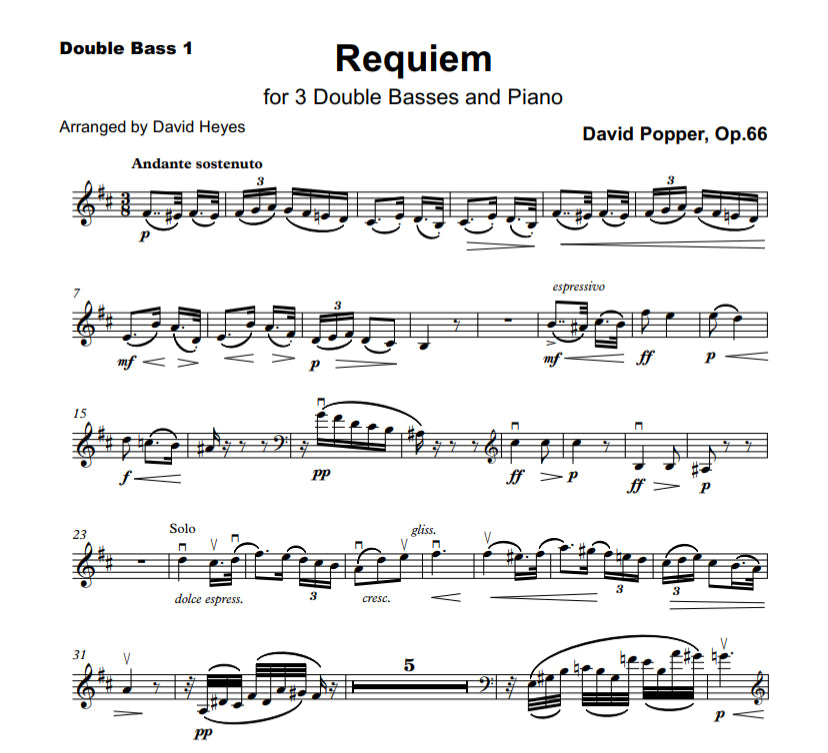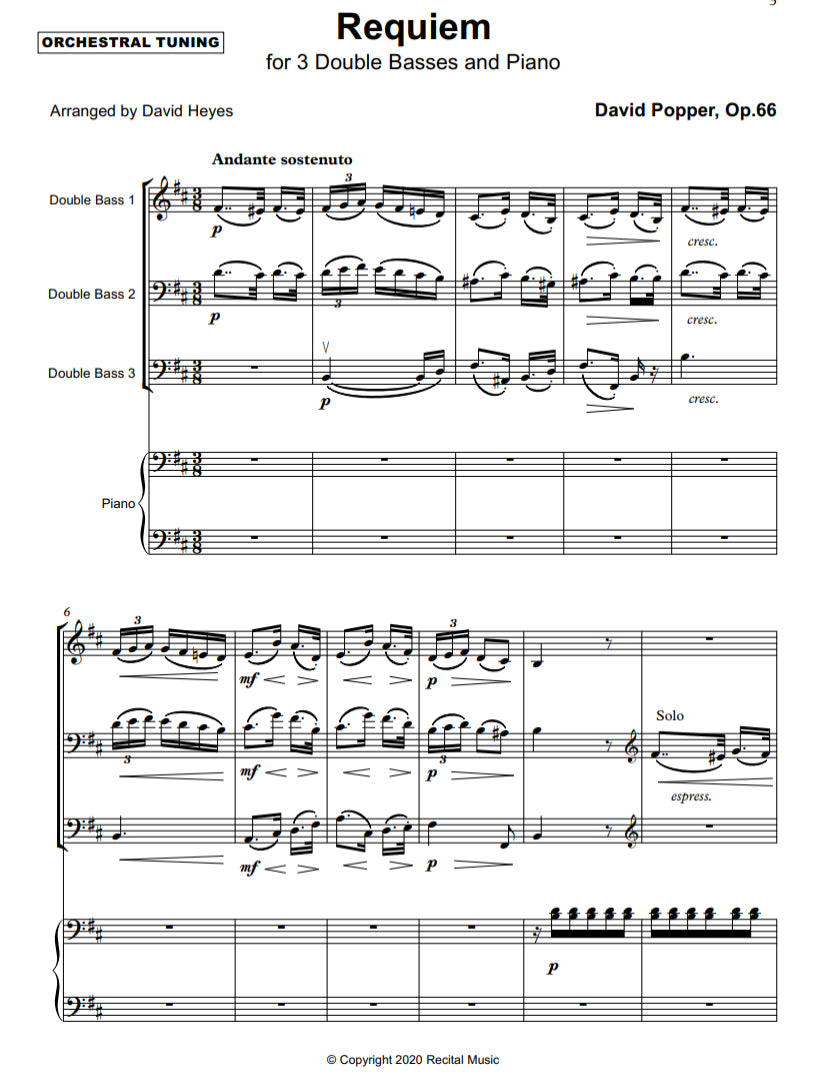David Heyes
David Popper: Requiem Op.66 for 3 double basses and piano (arranged by David Heyes)
David Popper: Requiem Op.66 for 3 double basses and piano (arranged by David Heyes)
Couldn't load pickup availability
About the Composition
Requiem, originally for cello trio and piano or orchestra, is probably David Popper's masterpiece and has remained in the repertoire for over a century. The glorious solo writing and rich harmonic textures have lost none of their shine or appeal over the years and it has also been arranged for a number of different instrumental ensembles.
Requiem transcribes well for double bass trio, although a change of key is needed to make it a successful transcription. Moving the original key up a perfect 4th, from F# minor to B minor, uses more of the solo register of the double bass.
Changing the key makes this far more virtuosic for the bassists than for cellists but it works well and brings another masterpiece into the double bass repertoire.
In 1891 Popper's publisher Daniel Rahter died and they must have had a very good working relationship resulting in a musical tribute from Popper in memory of his friend. Requiem Op.66 is for three cellos and orchestra or piano and was premiered in London in 1892.
This edition includes piano accompaniments for both solo and orchestral tunings.
About the Composer
David Popper (1843-1913), a leading cello virtuoso of his day, was born in Prague, studied cello at the Prague Conservatoire with Julius Goltermann, subsequently toured throughout Europe as a soloist and became principal cellist of the Vienna Court Opera. He also performed as a chamber musician with Johannes Brahms, Jenő Hubay, Emil Sauret, and Clara Schumann amongst others.
Popper was a prolific composer of cello music and his High School of Cello Playing Op.73, comprising forty etudes has remained an essential study repertoire for more than a century and Pablo Casals declared that “no other composer wrote better for the instrument”.







